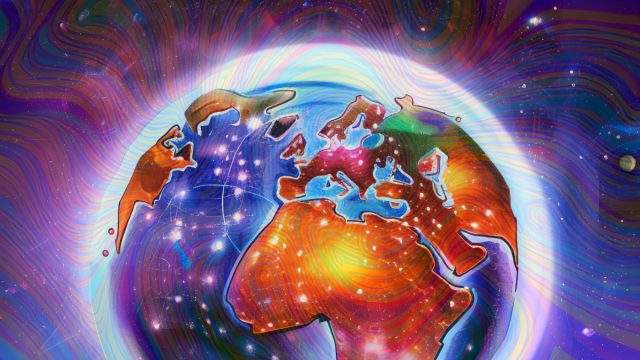Enlarge / An AI-generated picture of “AI taking up the world.”
Steady Diffusion
On Tuesday, the Middle for AI Security (CAIS) launched a single-sentence assertion signed by executives from OpenAI and DeepMind, Turing Award winners, and different AI researchers warning that their life’s work may probably extinguish all of humanity.
The temporary assertion, which CAIS says is supposed to open up dialogue on the subject of “a broad spectrum of essential and pressing dangers from AI,” reads as follows: “Mitigating the danger of extinction from AI must be a worldwide precedence alongside different societal-scale dangers corresponding to pandemics and nuclear warfare.”
Excessive-profile signatories of the assertion embrace Turing Award winners Geoffery Hinton and Yoshua Bengio, OpenAI CEO Sam Altman, OpenAI Chief Scientist Ilya Sutskever, OpenAI CTO Mira Murati, DeepMind CEO Demis Hassabis, Anthropic CEO Dario Amodei, and professors from UC Berkeley, Stanford, and MIT.
This assertion comes as Altman travels the globe, taking conferences with heads of state concerning AI and its potential risks. Earlier in Could, Altman argued for rules of his business in entrance of the US Senate.
Contemplating its brief size, the CAIS open letter is notable for what it doesn’t embrace. For instance, it doesn’t specify precisely what it means by “AI,” contemplating that the time period can apply to something from ghost actions in Pac-Man to language fashions that may write sonnets within the model of a Forties wise-guy gangster. Nor does the letter counsel how dangers from extinction could be mitigated, solely that it must be a “international precedence.”
Commercial
Nonetheless, in a associated press launch, CAIS says it needs to “put guardrails in place and arrange establishments in order that AI dangers don’t catch us off guard,” and likens warning about AI to J. Robert Oppenheimer warning concerning the potential results of the atomic bomb.
AI ethics specialists should not amused

Enlarge / An AI-generated picture of a globe that has stopped spinning.
Steady Diffusion
This isn’t the primary open letter about hypothetical, world-ending AI risks that we’ve seen this yr. In March, the Way forward for Life Institute launched a extra detailed assertion signed by Elon Musk that advocated for a six-month pause in AI fashions “extra highly effective than GPT-4,” which acquired large press protection however was additionally met with a skeptical response from some within the machine-learning neighborhood.
Consultants who typically deal with AI ethics aren’t amused by this rising open-letter pattern.
Dr. Sasha Luccioni, a machine-learning analysis scientist at Hugging Face, likens the brand new CAIS letter to sleight of hand: “Initially, mentioning the hypothetical existential threat of AI in the identical breath as very tangible dangers like pandemics and local weather change, that are very contemporary and visceral for the general public, provides it extra credibility,” she says. “It’s additionally misdirection, attracting public consideration to at least one factor (future dangers) so that they don’t consider one other (tangible present dangers like bias, authorized points and consent).”
Originally posted 2023-05-30 18:41:45.